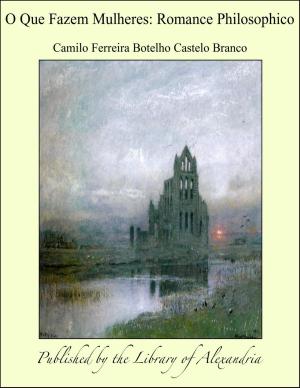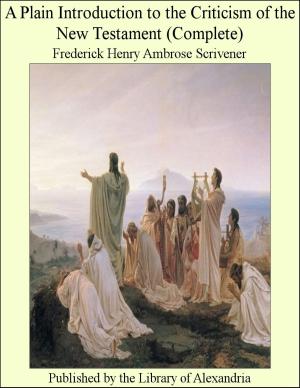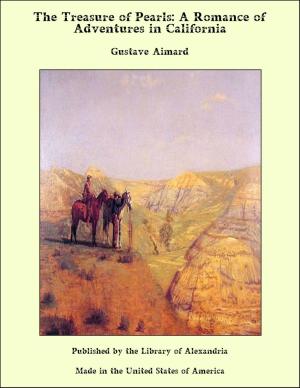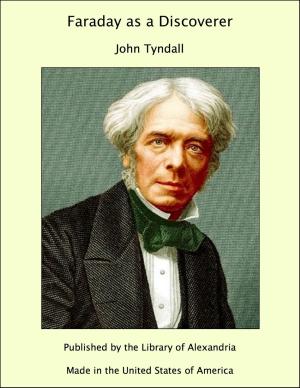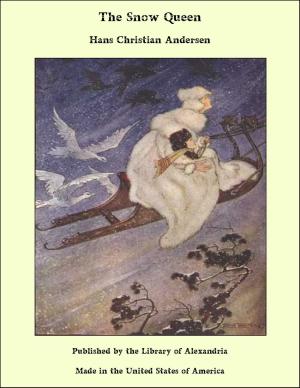The Expositor's Bible: Ephesians
Nonfiction, Religion & Spirituality, New Age, History, Fiction & Literature| Author: | G. G. Findlay | ISBN: | 9781465581273 |
| Publisher: | Library of Alexandria | Publication: | March 8, 2015 |
| Imprint: | Language: | English |
| Author: | G. G. Findlay |
| ISBN: | 9781465581273 |
| Publisher: | Library of Alexandria |
| Publication: | March 8, 2015 |
| Imprint: | |
| Language: | English |
“Paul, an apostle of Christ Jesus through the will of God, to the saints, who are indeed faithful in Christ Jesus: Grace to you and peace from God our Father and the Lord Jesus Christ.”[1]—Eph. i. 1, 2. In passing from the Galatian to the Ephesian epistle we are conscious of entering a different atmosphere. We leave the region of controversy for that of meditation. From the battle-field we step into the hush and stillness of the temple. Verses 314 of this chapter constitute the most sustained and perfect act of praise that is found in the apostle’s letters. It is as though a door were suddenly opened in heaven; it shuts behind us, and earthly tumult dies away. The contrast between these two writings, following each other in the established order of the epistles, is singular and in some ways extreme. They are, respectively, the most combative and peaceful, the most impassioned and unimpassioned, the most concrete and abstract, the most human and divine amongst the great apostle’s writings. Yet there is a fundamental resemblance and identity of character. The two letters are not the expression of different minds, but of different phases of the same mind. In the Paul of Galatians the Paul of Ephesians is latent; the contemplative thinker, the devout mystic behind the ardent missionary and the masterly debater. Those critics who recognize the genuine apostle only in the four previous epistles and reject whatever does not conform strictly to their type, do not perceive how much is needed to make up a man like the apostle Paul. Without the inwardness, the brooding faculty, the power of abstract and metaphysical thinking displayed in the epistles of this group, he could never have wrought out the system of doctrine contained in those earlier writings, nor grasped the principles which he there applies with such vigour and effect. That so many serious and able scholars doubt, or even deny, St Paul’s authorship of this epistle on internal grounds and because of the contrast to which we have referred, is one of those phenomena which in future histories of religious thought will be quoted as the curiosities of a hypercritical age.[2]
“Paul, an apostle of Christ Jesus through the will of God, to the saints, who are indeed faithful in Christ Jesus: Grace to you and peace from God our Father and the Lord Jesus Christ.”[1]—Eph. i. 1, 2. In passing from the Galatian to the Ephesian epistle we are conscious of entering a different atmosphere. We leave the region of controversy for that of meditation. From the battle-field we step into the hush and stillness of the temple. Verses 314 of this chapter constitute the most sustained and perfect act of praise that is found in the apostle’s letters. It is as though a door were suddenly opened in heaven; it shuts behind us, and earthly tumult dies away. The contrast between these two writings, following each other in the established order of the epistles, is singular and in some ways extreme. They are, respectively, the most combative and peaceful, the most impassioned and unimpassioned, the most concrete and abstract, the most human and divine amongst the great apostle’s writings. Yet there is a fundamental resemblance and identity of character. The two letters are not the expression of different minds, but of different phases of the same mind. In the Paul of Galatians the Paul of Ephesians is latent; the contemplative thinker, the devout mystic behind the ardent missionary and the masterly debater. Those critics who recognize the genuine apostle only in the four previous epistles and reject whatever does not conform strictly to their type, do not perceive how much is needed to make up a man like the apostle Paul. Without the inwardness, the brooding faculty, the power of abstract and metaphysical thinking displayed in the epistles of this group, he could never have wrought out the system of doctrine contained in those earlier writings, nor grasped the principles which he there applies with such vigour and effect. That so many serious and able scholars doubt, or even deny, St Paul’s authorship of this epistle on internal grounds and because of the contrast to which we have referred, is one of those phenomena which in future histories of religious thought will be quoted as the curiosities of a hypercritical age.[2]


